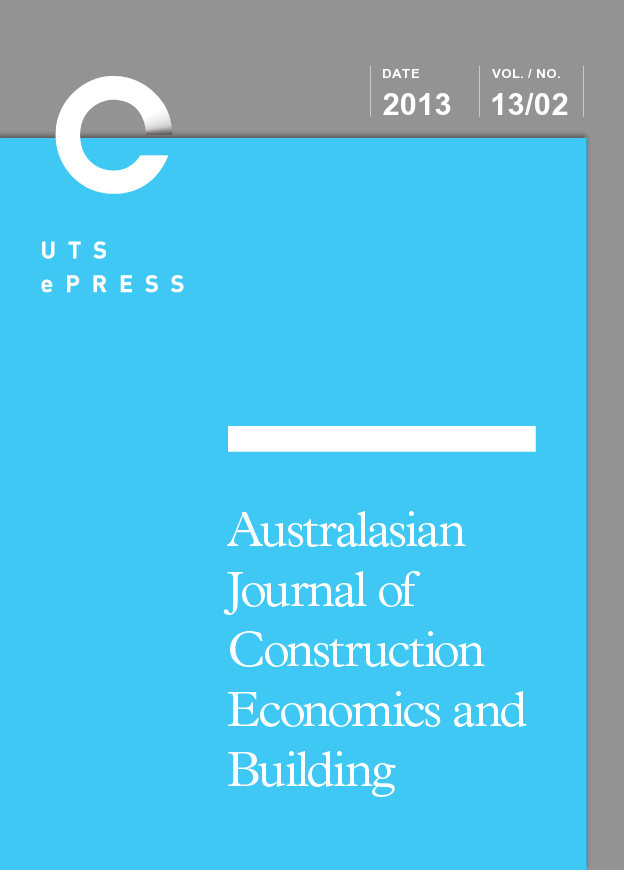An IPD approach to construction education
Main Article Content
Abstract
The construction industry worldwide is moving towards more collaborative working practices, such as integrated project delivery (IPD). The era of the Master Builder has passed; modern construction projects are too complex for one person to understand all aspects. New specialist disciplines are emerging, with experts engaged at earlier stages of the design process. However, this collaborative approach is not reflected in the current education of architecture, engineering, and construction (AEC) professionals. Students of the separate disciplines are generally educated in isolation from the others. On graduation, they are then expected to be able to work in integrated teams without prior training in multidisciplinary teamwork. This contributes to the poor levels of trust and inadequate information sharing that plague the industry and prevents it from fully embracing the productivity savings that BIM (building information modelling) and IPD promise. Academics of the AEC disciplines also work in isolation, and the same courses are developed from scratch every time a new academic arrives at an institution. This paper proposes an integrated approach to the teaching of AEC subjects, including a framework to assist academics in adapting their existing curricula, and reports on some initial trials carried out in three Australian Universities.
Article Details
Section
Authors who publish with this journal agree to the following terms:
a) Authors retain copyright and grant the journal right of first publication with the work simultaneously licensed under a Creative Commons Attribution License that allows others to share and adapt the work with an acknowledgement of the work's authorship and initial publication in this journal.
b) Authors are able to enter into separate, additional contractual arrangements for the non-exclusive distribution of the journal's published version of the work (e.g., post it to an institutional repository or publish it in a book), with an acknowledgement of its initial publication in this journal.
c) Authors are permitted and encouraged to post their work online (e.g., in institutional repositories or on their website) prior to and during the submission process, as it can lead to productive exchanges, as well as earlier and greater citation of published work (See The Open Access Citation Advantage Service). Where authors include such a work in an institutional repository or on their website (ie. a copy of a work which has been published in a UTS ePRESS journal, or a pre-print or post-print version of that work), we request that they include a statement that acknowledges the UTS ePRESS publication including the name of the journal, the volume number and a web-link to the journal item.
d) Authors should be aware that the Creative Commons Attribution (CC-BY) License permits readers to share (copy and redistribute the work in any medium or format) and adapt (remix, transform, and build upon the work) for any purpose, even commercially, provided they also give appropriate credit to the work, provide a link to the license, and indicate if changes were made. They may do these things in any reasonable manner, but not in any way that suggests you or your publisher endorses their use.
